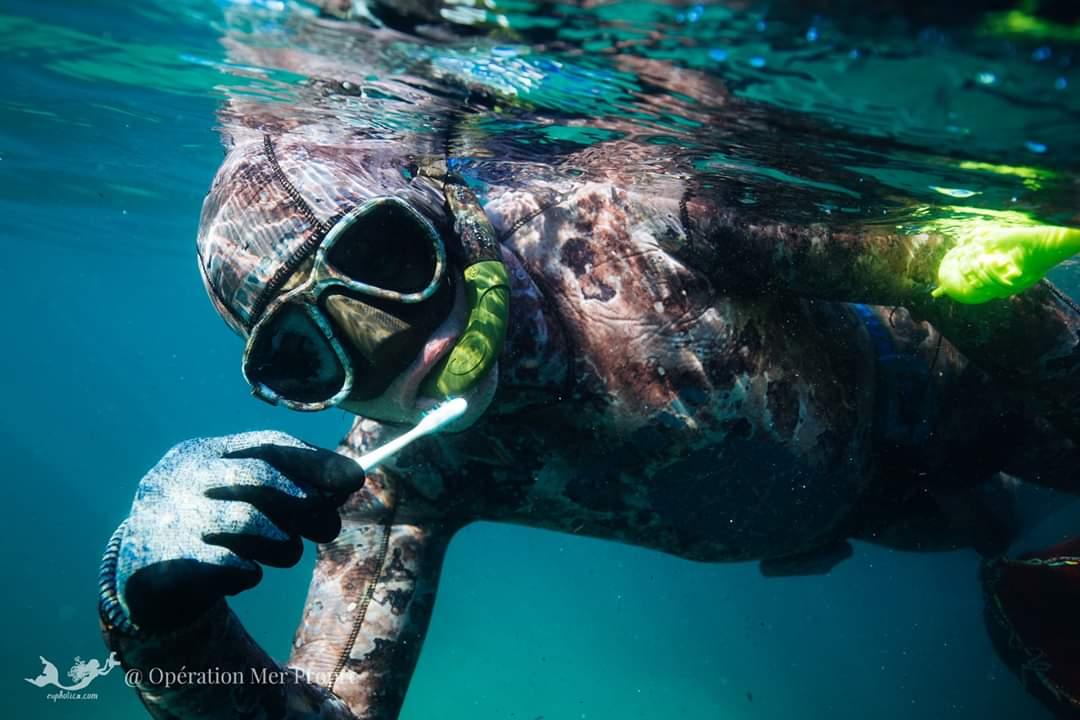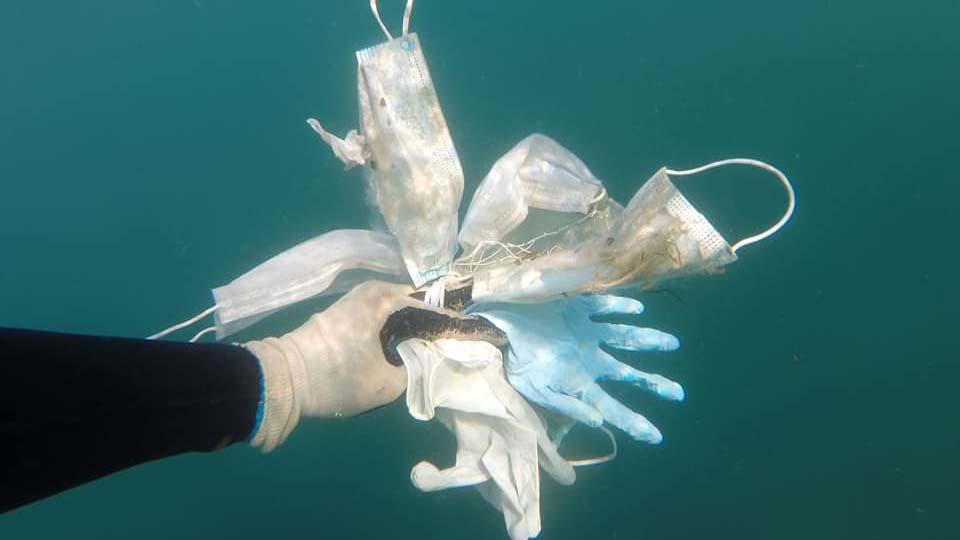As COVID-19 lockdown restrictions start to ease in France, more people are hitting the beaches in the south — and they’re leaving behind litter.
In addition to the usual fast-food wrappers, plastic bottles and cigarette butts littered across the Côte D’Azur, beach-goers may now find the waste of the novel coronavirus pandemic.
Last week, a group of marine divers of the French nonprofit group, Opération Mer Propre (Operation Clean Sea), discovered single-use masks and latex gloves in the waters of Antibes, a beach town on the Mediterranean Sea coast.
Related: Shutdowns have led to cleaner air quality. Is it sustainable?
The group, which routinely clears litter from bodies of water in France, was granted access to beaches to restart cleaning as soon as confinement measures started relaxing in France on May 11, said Joko Peltier, one of the cofounders.
The team found five masks and four pairs of gloves last Saturday. The next day, eight masks and six pairs of gloves.
“But the moment lockdown restrictions started easing up [in Antibes], and the waste was thrown on the ground, it all ended up in the sea the next day.”
“It’s not a lot,” Peltier told The World in French. “But the moment lockdown restrictions started easing up [in Antibes], and the waste was thrown on the ground, it all ended up in the sea the next day.”
In a Facebook video shared nearly 5,000 times, Laurent Lombard, another cofounder of OMP, scuba dives into the bed of the French Mediterranean, picking up tossed gloves and surgical masks. It looks like an eerie caution against this “future pollution of COVID waste,” as Peltier calls it.
Éric Pauget, a member of parliament who represents the region, agrees. He wrote to French President Emmanuel Macron urging the interior minister to issue fines of 300 euros, or about $332, to those who litter their protective equipment in public places. Used, thrown away masks are not only an environmental risk, he wrote, but a health concern during the pandemic.
“The presence of the virus potentially contaminates the surface of these thrown away masks,” Pauget wrote. “This presents a serious health threat to public cleaners and to children who could accidentally touch them. In addition, the friable polypropylene nanoparticles making up these masks that protect humans risk a lasting effect on our ecosystems and their biodiversity.”

On April 1, French Health Minister Olivier Véran said the government ordered over 1 billion single-use masks from China to meet the needs of the COVID-19 outbreak.
Prime Minister Édouard Philippe unveiled plans Thursday to further lift confinement measures across the country. Starting June 2, beaches, parks and lakes will open to all. Parks and gardens will also open, but meetings of groups of more than 10 people will still be prohibited.
“The results are good regarding the health plan … Good, but not sufficiently good for everything to return to normal,” Philippe said, addressing the nation.
Meanwhile, Peltier says that people should keep raising awareness and educating themselves on the impacts of waste — and now, “COVID waste” — on the sea and the environment.
“We have to pay attention,” Peltier said. “This is the health of our children and our future.”
